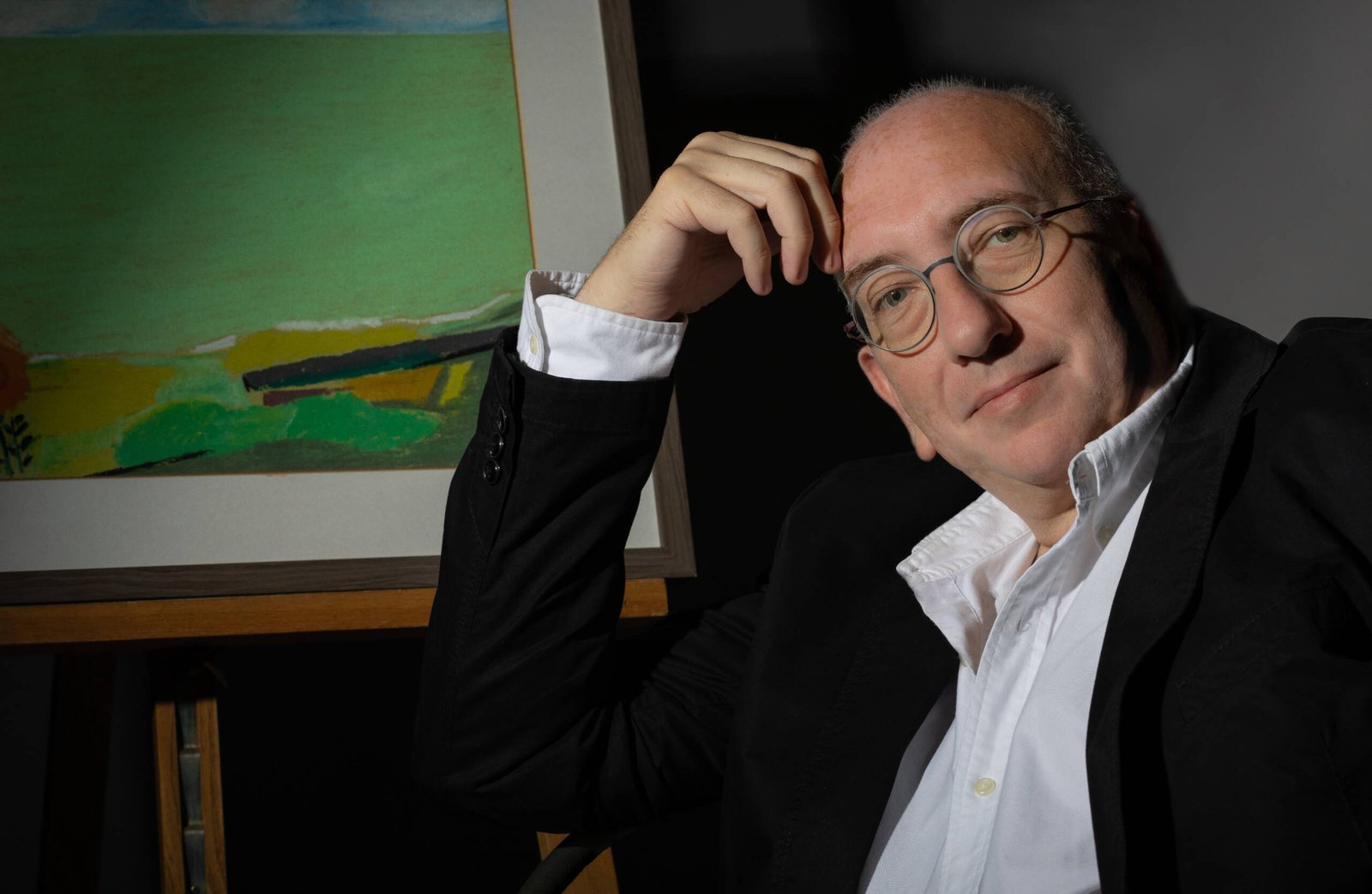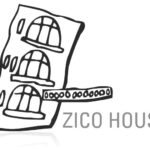[“The following copyrighted article is shared
with permission, and courtesy of theartpulse.com”]
Source link
Spotlight Q and A with Dr. Tony Karam (1591 Words 8 min. Read)
1. Who do you identify with, Dr. Tony Karam the physician or the musician?
I am first and foremost, Tony Karam. I am someone who is not limited to one aspect, or one trait. My daily life is Tony Karam, the doctor, the physician who treats and caters to my patients and attends to their needs. I lead my life this way and everything revolves around this mission, this priority, this ultimate goal.
But being a physician, is not about the science and about healing. It is about wisdom, and the art of navigating through difficult situations, helping the person in need to reach a better state than the state they presented with. As such, the extended arm of the scientific person, and the technical surgeon is the arm of philosophy, psychology, compassion and the understanding of the human entity. In that respect, art and music are closely entangled with this facet of my existence.
As such it is the totality of the above that makes me who I am, which is why I said I am first and foremost, Tony Karam.
2. What was your dream growing up, and did it materialize into the life you live today?
My dream was to have a close knit family. When my friends talked about building a mansion, or owning a fancy car, or dreamed about traveling the world, I was in my bed hugging my pillow (which in my fantasy world doubled as my partner in life), while imagining my children playing around in the bedroom around me. I planned my trips with them and saw them around me doing daily routine affairs that many take for granted and most ignore the value of.
To this end, I experienced a part of this at one point in time, but then life happened, and the dream became multiple dreams scattered around the world. I refused to give up on it, and I pursued the dream to the best of my ability, traveling the world to catch glimpses of it making the best of what I could experience during short lapses of time. I may not have succeeded fully at experiencing it as much as I would have liked to, but for sure, the outcome now is the close knit family all of whom I am proud of, and the close bond I have with them despite all the obstacles is the ultimate achievement of a dream.
3. How do you choose who to curate given that you are not a gallery owner, nor are you a full-time curator?
Honestly, I don’t like the term “curator” as it is self-limiting. And I say that with all my respects to the curators in the field who do a fantastic job and promote art in their own righteous ways. But to me, personally, given that my interest is not purely curation, I find that the true interpretation of what I do goes beyond curation.
To explain it a bit more: what I do, I do for the love of art. No more no less. I, along with my fascinating team to whom I am thankful, put on an exhibition which talks to me, which touches me personally. If the ultimate goal from it is to advance the artist once a step further in the long road to success, then everyone wins. My aim is not a financial one, as I never benefit from an exhibition, except perhaps when I acquire a painting or more from the artist, and this is always paid for, either directly or indirectly through financing parts of or all of the exhibition expenses. Many times I end up “losing money” on the deal, and I put the term “losing” in quotes, because it is never a loss except if you calculate numbers on a financial chart. But putting your own money on the table to support an artist or to expose art that has to be seen is never really a loss.
Some people “criticize” what I do. I laugh at that idea, because they truly do not “get it”, or they do not understand what I do. I cannot be judged based on the standards that others operate by. And this is why I do not think that the term truly fits with what I do. I think that all artists I have worked with have benefited in one way or another, and that is a great satisfaction to me. So did the people who attended and enjoyed the exhibitions, and this applies to all ends of the spectrum, be it young and upcoming artists, or fully established master artists who proved themselves with years of hard work and accomplishments.
I never claim to be a “curator”. I use the term for exhibitions for the lack of a better description. Initially I never signed my name to exhibitions. The spotlight is not mine, but it is the artist’s, which incidentally I respect by leaving on early on opening nights so that it is the artist involved who shines. I started putting my name on announcements after a famous and renowned artist (Rana Raouda) asked me to do so for my exhibitions, and it worked nicely for people now know which exhibitions I am involved in and which ones I am not. That created followers who appreciate what I do and who now come to the show to either discover someone I believe in, or to enjoy the way I select the material for the display, and how I display them etc… As such, the “curator” part of me was never intended to step over the boundaries of those who studied curation and curate for a living and I do not claim to be one.
The newer version of the exhibitions that I will present to the public shall carry a different signature, which I am sure will be as controversial. In a society where jealousy rules, and gossip reigns, people enjoy criticizing and fantasizing about negative connotations rather than experience reality and allow the purity of the process to lead the way.
4. Can you share with us a learning experience that shaped your life?
There is no single learning experience. I have had many and at different stages of my life, through the different obstacles I faced, following the one path I had created and sought for my life.
I learned through my profession that health is a blessing.
I learned through higher education that there is no road that is impossible to take and succeed in, the keys are: a clear vision, a well-thought path, and an unrelenting drive to reach the goal.
I learned through art that connection with the soul is critical in adding spice to an otherwise dry world.
I learned through my close family that true caring does not stem from infatuation or from a fantasy world.
I learned through marriage that it is not the expansion of a lusty moment, nor is it a passive business partnership deal. The former eventually bursts with time, and the latter reduces marriage to the dullness of a stagnating office job.
I learned through parenthood, as difficult as it is, that it is a fascinating journey where you learn that there is always someone more important than yourself.
I learned that friendship is the key to life, when intact it is a window to both the inner and the outside world, but when broken, it can leave wounds that sometimes never truly heal.
I learned that dreams are important because they drive you to your goals.
I learned that respecting reality is much better than living in the fantasy world. Aiming for La La land is good, but assuming that you are there already is an ego trip that cannot but bring on the downfall of the person.
5. Is there anything that you can advise a teenager who wants to follow their dream of becoming an artist?
Follow the dream, but not blindly. We have a brain that is supposed to be used. We cannot think with our heart. We think with our brain and feel with our hearts. Thinking and feeling are two separate entities. They can function together but it is difficult at times to know which entity should tackle which issue. If you master that art of balance, then you would be more than OK.
I also advise them to surround themselves with loving family and true and genuine friends. Both are important for a well-rounded life. Avoid those who use you for their own gain. Avoid those who are full of noise and empty inside. It is far better to be alone than to be with the wrong people around you. Be honest and respectful at all times. And never share your inner secrets with anyone. Privacy should be protected.
Art, can be a profession. The road is hard. But it is not harder than any other profession that one wants to excel at. I myself am a doctor who went through a very strenuous and difficult road to get to where I am, professionally. But I did it, and so can anyone who puts their mind to it. I also succeeded in music, and reached a very professional level. That came through sacrifice and hard work as well. And I did that, and in parallel to everything else. So it is doable.
Follow the dream. You can,. But you have to truly want to.



